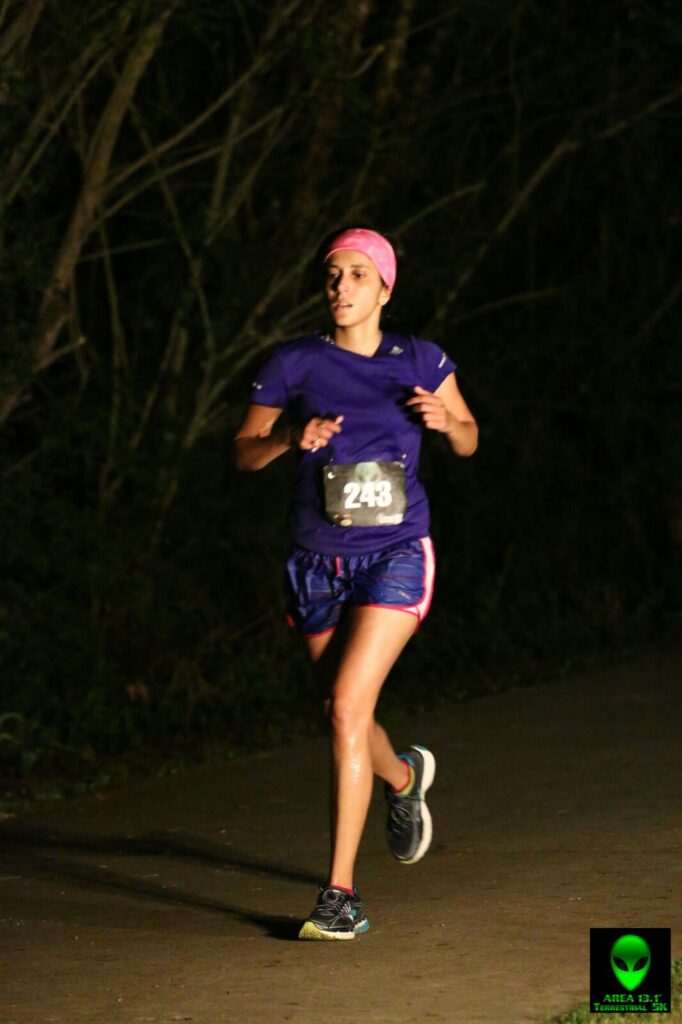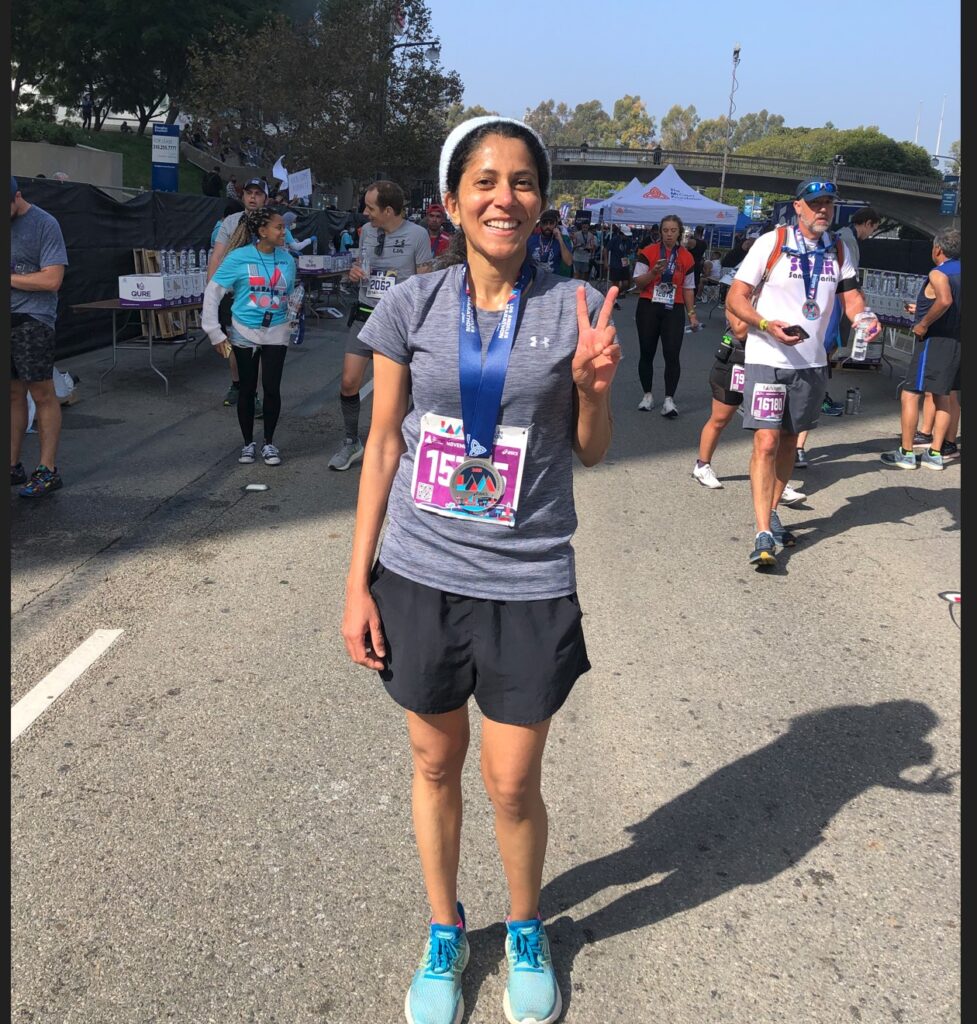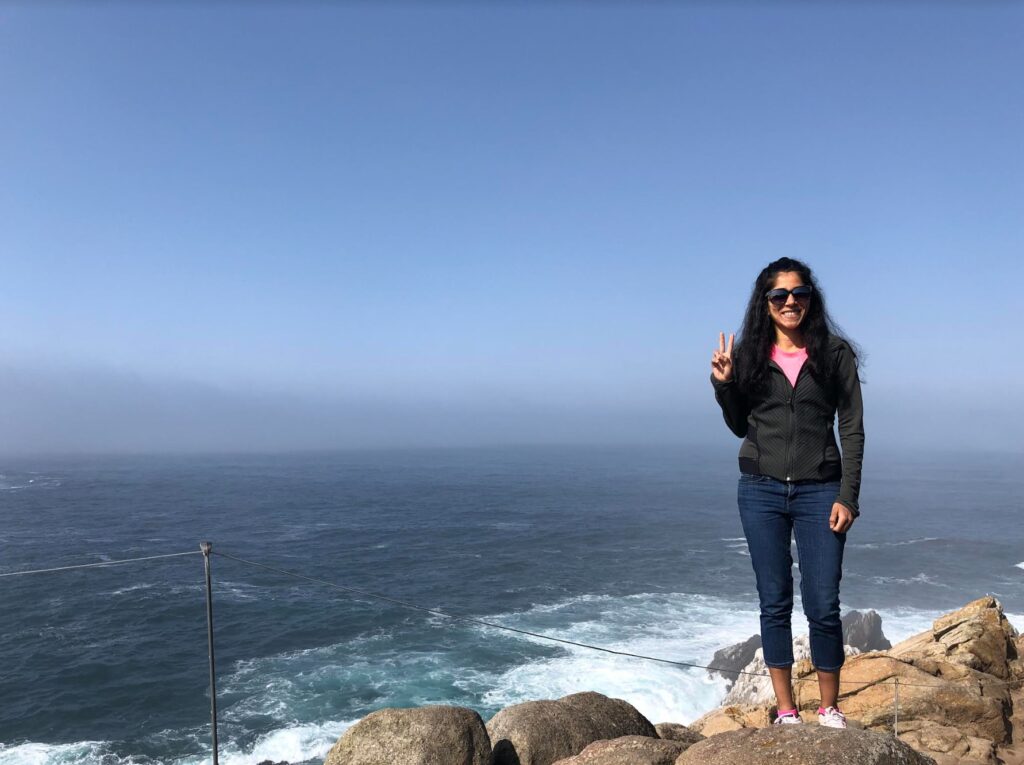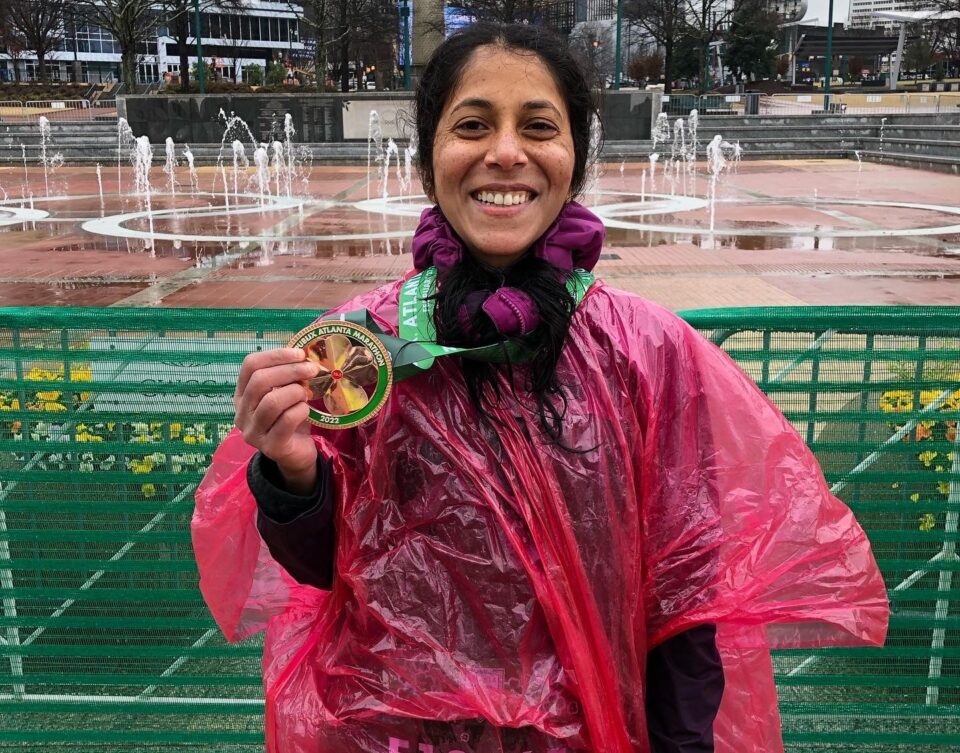BY JYOTHSNA HEGDE
In the era of social media, where claim to fame is the name of the game, it is refreshing to find someone who pursues their passion to fruition, fully aware of the fact that there is no glory to claim and no trophy to take home.
“Marathoning. The triumph of desire over reason,” quotes New Balance Magazine. True to that statement, Deepika Chalke, an avid runner completed a whopping 105 half marathons (13.1 miles) in a year (365 days from June 2021 to May 2022), surpassing the current Guinness World Record for most half marathons in a year by a woman, which is 102. And yet, she will not enter the Guinness Book. She completed her marathons fully aware of the fact. She just wanted to beat the record. Period.
What?
In order to enter the enter the coveted book of records, participants are required to create an application on the Guinness World Record website at least a few months before the official record attempt, because per their website, they respond to applications in 12-16 weeks. Once the application is officially approved, a list of guidelines and required proofs will be shared with participants to track their progress.
When Chalke started creating her profile on the website, she was asked to enter the start date of her attempt. But she had already kick started the process. The website also mentions they take 12-16 weeks to review and respond to applications. Chalke tried various avenues to reach a person to talk about her attempt but always landed with an automated message directing her to apply on their website.
“I had two choices – to stop running and spend a year communicating with the Guinness record team – by creating an online application, waiting to hear back within 12-16 weeks, getting approved for the attempt and receiving official guidelines, spending money and time planning the complicated logistics and starting from scratch, possibly a year later OR continue running and forget about official record status.” Chalke said. And she chose the path less traveled.
“I chose to forget about the official status because running the way I was running was the greatest gift by itself, a dream come true, I was having so much fun, growing stronger and I wasn’t willing to wait or lose my momentum,” Chalke says about her choice.
Why? “Some things in life only happen once. Running was the most important thing. I told myself on every half marathon run – it’s now or never and I truly believed in that. As a little girl, I craved a life of adventures and sports and now that destiny had bestowed upon me this opportunity, I wasn’t going to lose it.”

So where does the journey begin? Surprisingly, Chalke does not come from a family of sports people and neither did she play professionally as a youngster. She however loved to play sports as a child. Watching Mumbai marathon runners as a teenager inspired her to be one. “Intuitively I felt running was tough but good for the body and soul. I feel if you look at running with all of these positive emotions, it becomes a positive, life-saving energy. But if you look at running as a torture tool or through a negative lens, it will become a negative experience. Emotions define our reality.” And the seed was sown.
A Marathon is 26.2 miles and Half Marathon is 13.1 miles. Chalke has no formal training/coach. So how did she train to set the record? Did she always want to set the record? Inspired by the book Spark: The Revolutionary New Science of Exercise and the Brain by John J Ratey, between February 2018 – March 2020, Chalke spent 30 minutes on Elliptical machine. This, she notes, helped her develop good physical and mental health. In April 2020, with the gym closed due to the pandemic, she started running at a trail. Between May – December 2020, Chalke ran close to 150 miles per month most days, building from 45 mins to an hour and forty minutes. Chalke competed 1561 miles in 2020. The thought of entering a Guinness record had still not crossed her mind. ”I just wanted my body to be so strong that running a half marathon would be like a walk in the park.”
Between Jan 2021 – December 2021, Chalke ran 1544 miles, 71 half marathons, and 6 marathons. All half marathons were done at her favorite local trail in Smryna. 3 were official marathons – Philadelphia Marathon, LA marathon, and Rocket City Marathon, Alabama.
It was in
the last months of 2021 that the idea of the Guinness world record dawned upon Chalke.
“I will attribute this to a higher power because I am not a professional
athlete,” she admits.
“It is recommended not to run more than 3-4 marathons per year because it’s
brutal for the body,” Chalke notes. And she knows from experience for this to
be true. Between Jan 2022 – June 2022, Chalke completed 49 half marathons and 3
official marathons – Rock n Roll Arizona Marathon on January 16, A1A Fort
Lauderdale Marathon on Feb 20, and Publix Atlanta Marathon on Feb 27. Running
for Fort Lauderdale and Atlanta Marathons on back-to-back weekends took a toll
on Chalke which took a month to recover. “My legs hurt terribly, and I could
barely move them after Atlanta Marathon. I thought my record attempt was over,
but the body repaired itself and I could continue.”
Between June
1 2021 – May 31 2022, Chalke completed her record breaking 105 half marathons,
which surpasses the current record for most half marathons in a year by a woman,
which is 102. ”I run all my half marathons non-stop without any walking breaks.”
“The music of a marathon is a powerful strain, one of those tunes of
glory. It asks us to forsake pleasures, to discipline the body, to find
courage, to renew faith, and to become one’s own person, utterly and completely,”
writes George Sheehan,
running author. Chalke has experienced this first-hand. Between May 2020 – May
2022, all she did was office work and running. “What I ate was completely
determined by running – will it fuel my runs and recovery? I never traveled
anywhere because that meant it would interrupt my running. I never tried any
other sport because if I got injured, I wouldn’t be able to run. I ate, slept,
and was breathing running. I met friends only on birthdays and during
festivals. This is because I felt I had to commit 100% to running. When she
received a Christmas gift with a message addressed to the “most dedicated
runner,” Chalke saw that as a sign that she was headed in the right direction.
“If I showed up for running, running showed up for me.
A vegetarian, Chalke’s diet mostly included fruits and plant seeds. During the training and the actual record, she followed intermittent fasting, and her diet mainly included a banana, blueberry, blackberry, chia seeds, flax seeds, hemp seeds, dates with water – smoothie supplemented by veggies, other fruits, and black coffee. Her diet, she emphasizes, was based on her body’s feedback. “Please listen to your body.” Sleep, she adds is most important because it is required for the body to recover, repair, and heal.
“I was in a state of shock, euphoria, and disbelief. I paced my room, repeating to myself – this is impossible, this can’t be real, I can’t believe it…. For a few minutes, I experienced the thrill and joy of a six-year-old, grinning and laughing,” Chalke says about finally beating the official record, sans the entry to the Guinness book.
What were some of the biggest challenges Chalke faced? “My marathon journey was full of hard lessons,” says Chalke. While she completed her first half marathon successfully in 2:08:36 in the rain and 45-degree cold wearing old, worn-out shoes, Chalke ended up with painful IT band injury for more than a year which healed on its own in time. Lesson learned: train right and avoid injuries. At the Oklahoma City Memorial Marathon in April 2015, finishing in 5:23, Chalke ate a protein bar while running that gave her an upset stomach for the last the last 2.5 hours of her run. “Never do anything new in your marathon that you haven’t done in your training runs, especially when you are a beginner,” Chalke observes.
A marathon is challenging both physically and mentally. So, why run the marathon?

“If
you want to run, run a mile. If you want to experience a different life, run a
marathon,” Olympic gold medalist Emil Zatopek famously said. Marathons seem to
have that effect on every runner. “Running brings you back to life, closer to our origins and to what
it means to be a human because our species and the human body started off as
runners and wanderers. Our ability for long-distance running helped us survive
and evolve as a species,” Chalke remarked. Particularly fond of official
marathons and half marathon events, Chalke says they exude the best energy. “It’s
primal, raw, kind, and ready to fly after months of training, the feeling of
belonging and a sense of community with thousands of runners is unbeatable, and
the energy of play and adventure, healing and exploring and pushing the limits
of what’s possible is an incredible experience, overcoming difficult moments
like when you feel you will pass out or when you are so exhausted that you
can’t run anymore fill you with hope in ways that nothing else can because the
body has an active memory of persevering and winning.”
What are the physical requirements for training for a marathon? Can anyone do
it? “The best thing about running is you
only need good running shoes and no other equipment. If your doctor approves
you for running a marathon and no part of your body aches or is injured, and if
you are able to do the work which includes training runs, proper nutrition and
hydration, adequate sleep, strength training, and stretching, then you can run
a marathon. Train in Spring or Fall as opposed to summer because training in
the heat is tough,” notes Chalke. While training for the first marathon takes
about 4-6 months with at least 3 runs each week, Chalke suggests practice of long
runs on weekends and shorter runs on weekdays. For the first marathon, she
recommends joining a marathon training program. “Always take feedback from your
body because your body always talks to you.” Investing in good running shoes
and good running clothes, is critical she notes. Chalke suggests a combination
of jogging and walking for 4-5 hours successfully finish a marathon Having a
protein shake and electrolytes and water within 30-45 minutes of a run is
crucial, she adds. “Train for a half marathon first, and see if you enjoy doing
a half marathon event. If you do, you can train for a marathon. You can
try a 5K before a half marathon. Be prepared to persevere and persist.”
What motivated this runner to stay on
course despite knowing she would never garner an official entry into the
Guinness Book of records? “In running, I find hope, freedom, exhilaration,
strength, challenge, and flow. It relieves nervous energy and makes you more
joyful. Running awakens my inner fighter and gives me a fight worth fighting for,”
Chalke notes. Running through nature, she adds brings about calmness similar to
the one that brings us back home to what it means to be a human, the most “primal,
feel-good, life-giving, meditative, life-force enhancing thing you can do for yourself.”
Traveling to other States and running official marathons with thousands of
runners, Chalke says makes her feel part of something amazing and meeting kind
people restores her faith in humanity.
“Ever since I was a child, my mother always mentioned the Bhagavad Gita where Lord Krishna tells Arjuna – Do your duty, do the deed without expecting any reward; I believe in this,” Chalke recalls.” I am actually surprised that I have been rewarded for my effort with kind words of appreciation from friends and strangers and an article about this adventure by you (Jyothsna) on a wonderful platform (NRI Pulse). Growing up watching her mother work hard and never giving up inspires her. “I also believe that the character you develop, the person you become, and the adventure you have by following your sense of wonder and curiosity are more important than any external reward.”
As Oprah Winfrey said, “Running is the greatest metaphor for life, because you get out of it what you put into it.”






